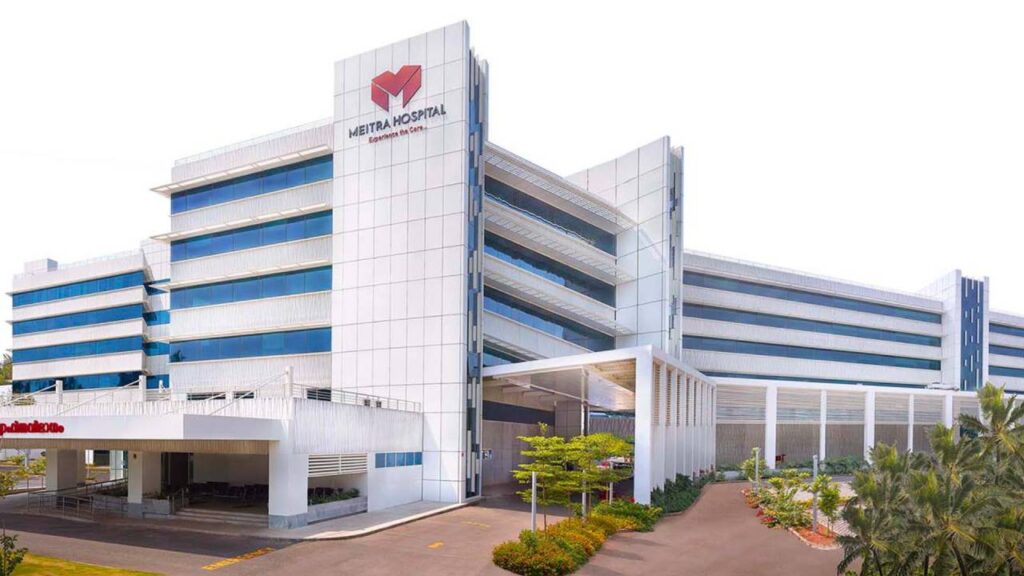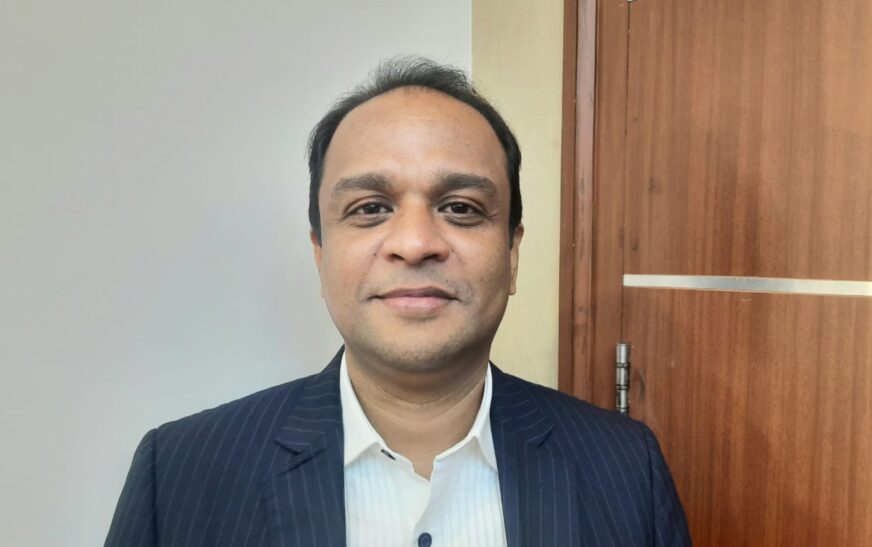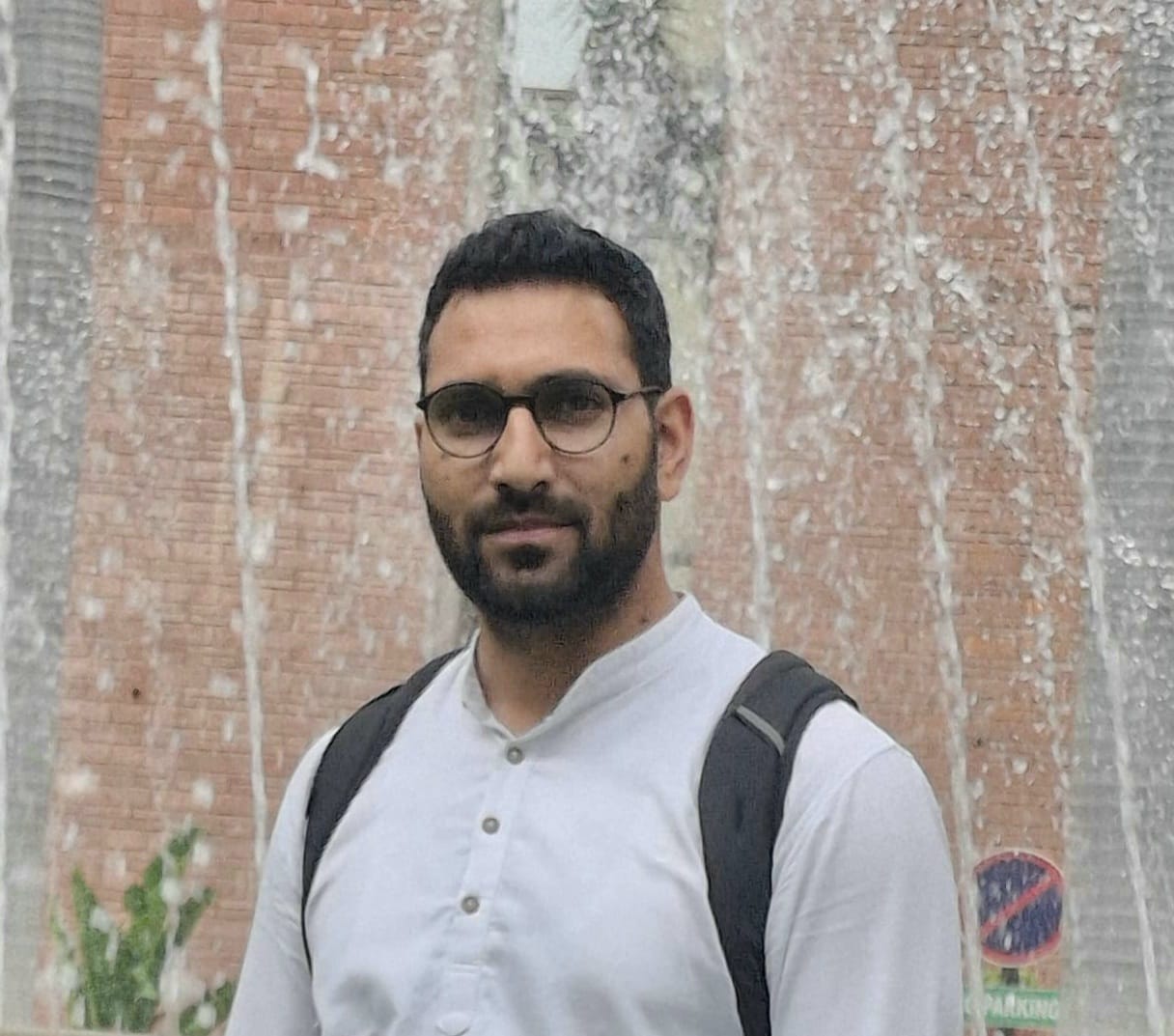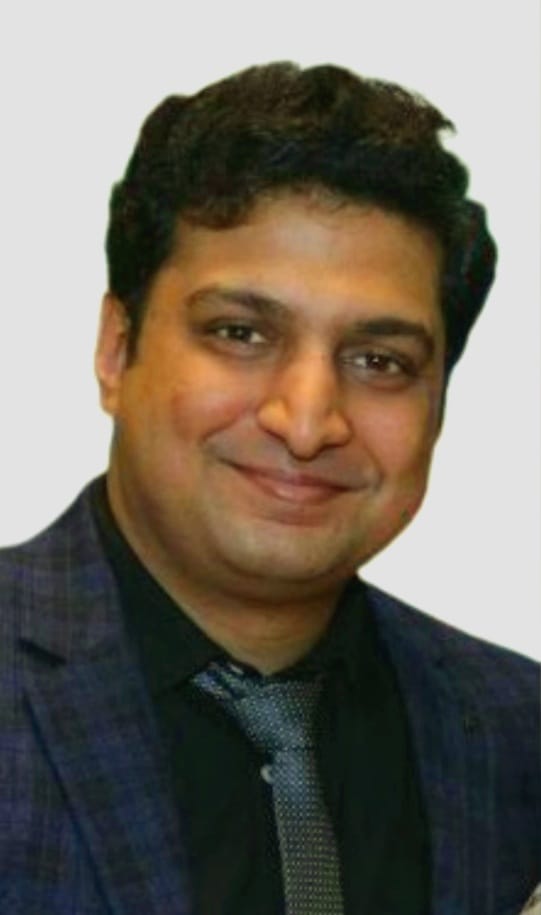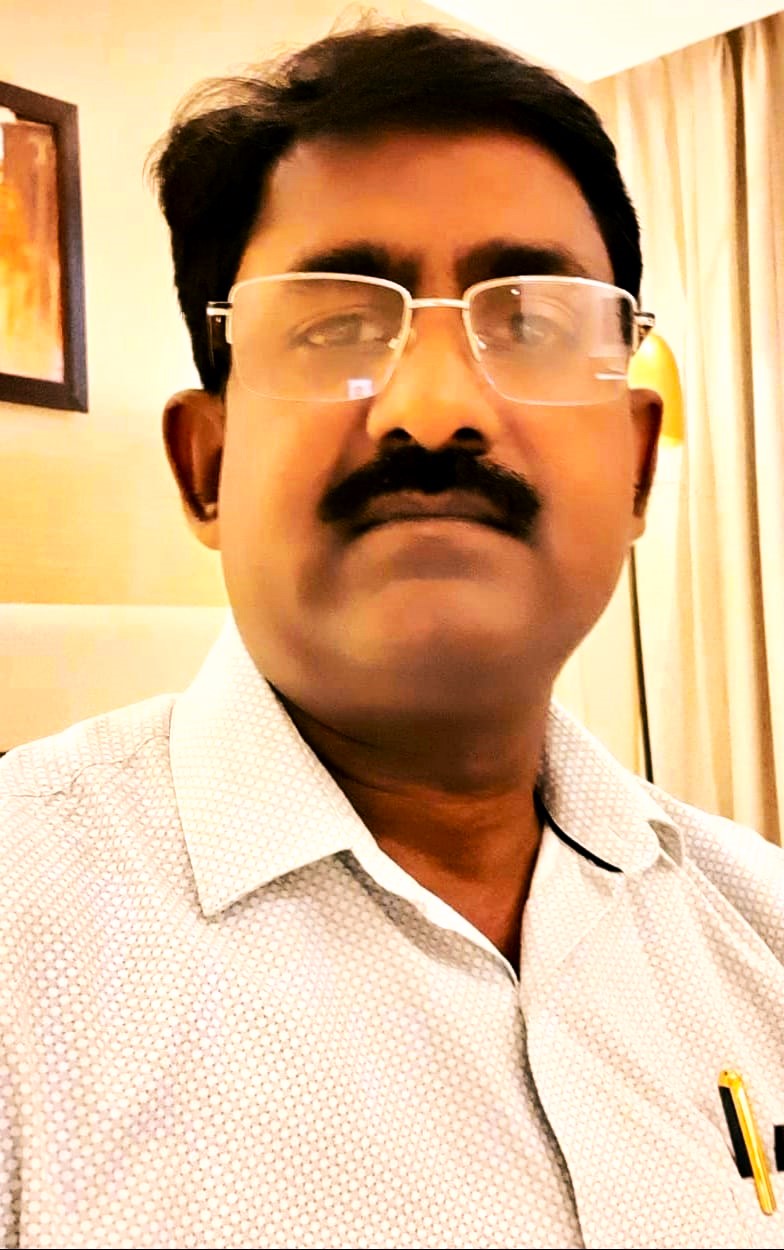Meitra Hospital, nestled in Calicut, Kerala, shines as a beacon of world-class healthcare, seamlessly blending cutting-edge technology with an unwavering patient-first philosophy. Purposefully designed for excellence, the hospital spans an impressive 450,000 square feet, housing 220 private patient rooms, 52 advanced ICU suites, and 7 state-of-the-art operation theatres.
At the core of Meitra’s distinction are its Centres of Excellence, specializing in Heart and Vascular Care, Bone, Joint and Spine Care, Neurosciences, Gastro Sciences, Nephro-Urosciences, and Cancer Immunotherapy. Manned by a distinguished cadre of medical experts, these centers harness pioneering technologies, notably South India’s first Robotic Hybrid Cath Lab and the CORI Surgical System for robotic joint replacement surgeries.
Driven by an uncompromising commitment to quality, Meitra has earned a host of prestigious accreditations. It holds NABH and Green OT certifications and proudly became the first hospital in the Malabar region to secure the globally esteemed Joint Commission International (JCI) accreditation.
Setting a new benchmark in patient experience, Meitra introduces the unique ‘Hospitel’ concept—a harmonious fusion of clinical excellence and the luxurious comforts of a premium hotel. Anchored in transparency, ethical integrity, and relentless innovation, Meitra Hospital not only heals lives but also redefines healthcare standards across India and beyond.
During the FICCI Medical Value Travel Conference, in an exclusive conversation with The Interview World, Nihaj G Mohammed, CEO of Meitra Hospital, offered profound insights. He detailed the hospital’s specialized healthcare services, outlined the strategic integration of multidisciplinary care to elevate patient outcomes, and emphasized the critical measures needed to fortify and expand India’s medical value travel sector. Furthermore, he underscored the imperative for robust, future-ready healthcare infrastructure to enhance the global competitiveness of India’s clinical corridors.
Here are the key takeaways from his compelling discourse.
Q: Could you elaborate on the key healthcare services and specialties that Meitra Hospital is known for?
A: Meitra Hospital, a 250-bed facility with a scalable capacity of 300 beds, proudly stands as a Joint Commission International (JCI)-accredited hospital in Kozhikode, Kerala. As one of the largest healthcare operators in North Malabar, Meitra leads the region in robotic knee replacements, liver transplants, multi-organ transplants, and epileptic surgeries.
Driven by a commitment to clinical excellence, Meitra offers a comprehensive range of advanced medical services across specialties. From pioneering complex procedures to delivering high-precision surgical care, the hospital has built a reputation for achieving outstanding patient outcomes.
Moreover, Meitra’s quaternary healthcare infrastructure ensures an unparalleled clinical environment, combining world-class expertise with an exceptional patient experience. Setting new benchmarks in Indian healthcare, Meitra Hospital continues to redefine the standards of excellence, innovation, and compassionate care.
Q: Service integration is often highlighted as crucial in healthcare. How is Meitra Hospital approaching the integration of various services to enhance patient care?
A: Interestingly, we have taken a significant step forward through our affiliation with KEF Holdings, a Singapore-based holding company. Recently, the board launched an ambitious new project—Tulah Clinical Wellness Sanctuary—a groundbreaking clinical wellness resort built around the philosophy of integrated medicine, set on 30 acres of pristine land.
Over the past four to five years, we have carefully incubated this concept, blending traditional healing practices with the precision of modern medicine. Now, we are embedding this integrated approach directly into our hospital’s framework, offering a seamless fusion of ancient wisdom and cutting-edge science.
Through this transformation, we are shifting away from the conventional, reactive model of healthcare. Instead, we are embracing a holistic paradigm—one that encompasses illness, wellness, and overall well-being, while emphasizing preventive care and promoting longevity.
In our view, this integrated, proactive approach represents the true future of healthcare, particularly for India’s evolving landscape.
Q: In the context of medical value travel, what key measures should be taken to strengthen and expand this segment?
A: I believe the Government of India has a critical role to play in this space. Unfortunately, as highlighted in several panel discussions today, while a great deal of work is being done, very little of it gains visibility in international markets. Presently, it is largely corporate hospitals that promote themselves as part of India’s medical value tourism sector.
If the government is truly serious about positioning medical value tourism as a cornerstone of India’s growth strategy, it must broaden the national narrative. India must not only champion its prowess in IT but also spotlight its excellence in healthcare. It must actively promote the quality of its medical services, while proudly showcasing its traditional strengths—Ayurveda and yoga.
When India builds this integrated story around modern and traditional healthcare, it will create far greater global traction. As international interest grows, connectivity challenges, transportation issues, and quality concerns will naturally receive stronger attention and resolution. This will pave the way for a more seamless inflow of global patients.
Ultimately, India must promote itself not just as an IT or textile hub, but equally—and assertively—as a global leader in medical value tourism.
Q: With the growing focus on clinical corridors, is India’s healthcare infrastructure ready to meet the demands of the global market?
A: In India, unfortunately, healthcare quality and infrastructure still predominantly reside within the realm of corporate hospitals and the private sector. Building this infrastructure is a capital-intensive process, requiring significant funding and investment. While I don’t expect the government to directly finance the creation of healthcare corridors, it’s clear that such an endeavour demands a collaborative effort between the private and public sectors, as well as investors eager to support these initiatives.
Currently, healthcare facilities are largely concentrated in Tier 1 cities like Delhi, Mumbai, and Hyderabad. Few are expanding into Tier 2 cities, despite increasing competition. This imbalance will eventually correct itself, but it will require a concerted push. The government, alongside private players and financial institutions, must collaborate to create a robust healthcare corridor. At the heart of this vision lies one critical factor: substantial investment.
